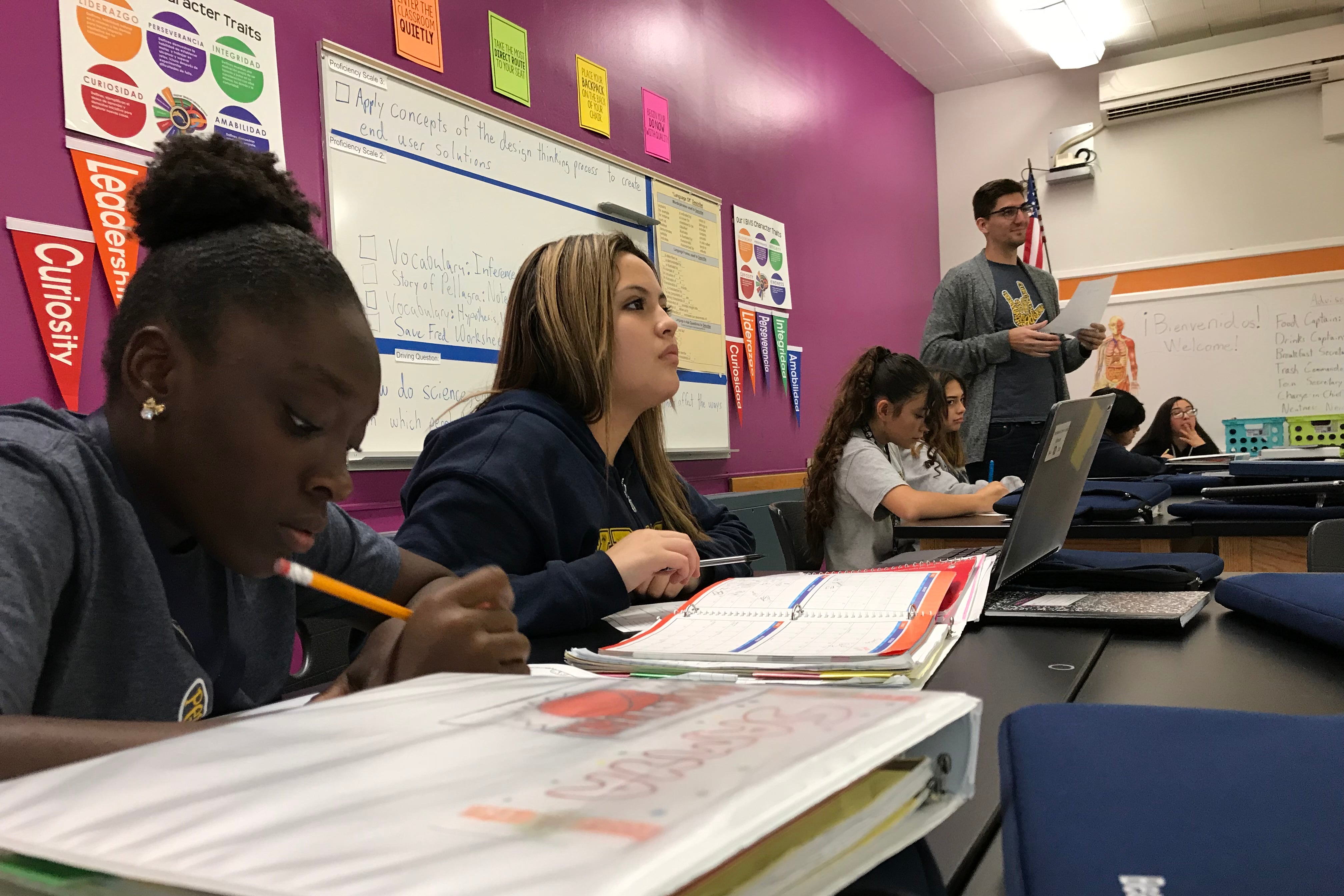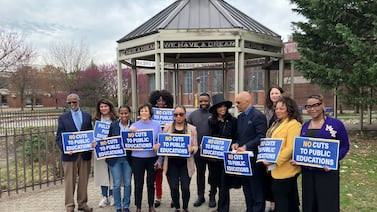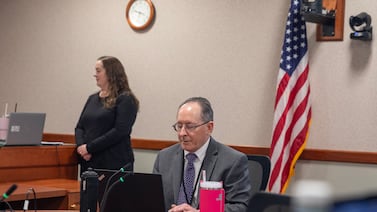Chalkbeat is a nonprofit news organization covering public education in communities across America. Sign up for our free Colorado newsletter to keep up with education news from Denver and around the state.
In a split vote Monday, the Denver school board dissolved one of the district’s three innovation zones, placing a group of semi-autonomous schools back under district control.
Kepner Beacon and Grant Beacon middle schools will no longer be under the umbrella of Beacon Network Schools, a zone overseen by an independent board of directors.
It was not immediately clear Monday what the change will mean for students, parents, and teachers. Many parents fear that programs and services they love at Beacon schools will go away. District leaders have said being under district control will improve the schools.
Superintendent Alex Marrero recommended revoking Beacon’s innovation zone status because of low test scores at Kepner Beacon and concerns about the zone’s organizational health, including what he said was inadequate financial oversight by the zone board.
Marrero also said Denver Public Schools no longer supports the Beacon zone’s unique employment structure, which was set up under a previous superintendent. The zone’s executive director, Alex Magaña, is an employee of the district but answers to the zone board.
Several school board members were conflicted on whether to dissolve the zone. But Scott Baldermann, whose son attends Grant Beacon, was firm in his vote to get rid of the zone.
For a zone executive director to be an employee of DPS but answer to an unelected zone board that Baldermann called “hand picked” constitutes “self dealing,” he said.
“This is what holding schools accountable looks like,” Baldermann said.
The board voted 5-2 to revoke Beacon’s innovation zone status. Vice President Auon’tai Anderson and board member Carrie Olson voted no. Both said they were worried about Kepner Beacon in southwest Denver, a community whose schools have repeatedly been closed, reopened, and reinvented in the name of improving student test scores.
At a meeting last month, Beacon parents pleaded with the board not to dissolve the zone.
“The lived experiences of the people in the community don’t match what we’re talking about here,” said Olson, a former teacher who taught for years at Kepner Middle School before it was restarted as Kepner Beacon. “All they see once again is that Denver Public Schools is coming into the neighborhood and saying, ‘We know best.’”
Several parents said they feared that getting rid of the innovation zone was the first step to getting rid of the schools’ individual innovation status. Schools with innovation status can waive rules, laws, and teachers union contract provisions to do things they believe will improve student learning. But unlike schools in zones, individual innovation schools are overseen by DPS.
“Our school is not broken,” parent Claudia Carillo told the school board at a lengthy public hearing last month. “So why fix our school if it’s not broken?”
But Marrero said repeatedly Monday that the Beacon schools won’t lose anything.
“They maintain all the great things you saw,” he said, referencing visits to the schools by board members. The district, he said, would “simply have more visibility” into the operations and academics at Beacon schools and be able to intervene “without any obstacles.”
A state law passed last year gives innovation zones some recourse when they disagree with district decisions. The law allows a neutral third party to hear disputes and issue recommendations. It also allows the State Board of Education to review and comment on local revocation decisions but not override them. Magaña said Beacon may consider that recourse.
While innovation schools — district-run schools with charter-like flexibility — exist throughout the state, these types of innovation zones are unique to Denver Public Schools. As part of education reform policies supported by the previous school board, the district encouraged school autonomy. Part of that was creating innovation zones, groups of semi-autonomous schools that share leadership and resources and have additional flexibilities.
The current board has placed new limits on individual innovation schools and placed innovation zones under more scrutiny. However, the Beacon Network is the first zone to be dissolved.
The Denver school board directed another innovation zone, Northeast Denver Innovation Zone, or NDIZ, to submit a new plan for how it will operate after teachers at its largest school, Northfield High, voted last month to leave the zone next school year.
NDIZ charges each of its schools a per-pupil fee to fund the zone’s operating expenses. The school board directed the district to review if NDIZ will be financially viable without Northfield.
The board also unanimously approved without comment the plan for the Luminary Learning Network, which was the first innovation zone in DPS when it was formed in 2016.
Melanie Asmar is a senior reporter for Chalkbeat Colorado, covering Denver Public Schools. Contact Melanie at masmar@chalkbeat.org.




